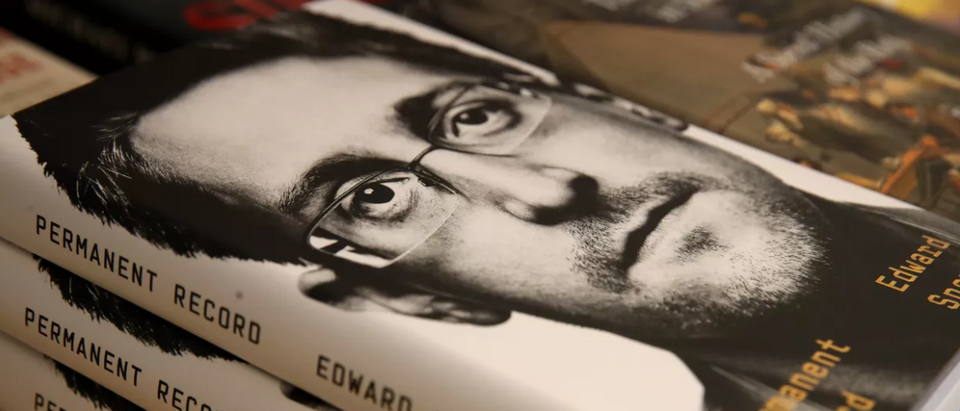A federal judge in Virginia ruled on Tuesday that the federal government could confiscate proceeds from the sale of former NSA contractor Edward Snowden’s book, “Permanent Record.” Members of the intelligence community are required to seek prepublication review from their former agencies before publishing work related to their experience, a requirement the judge said Snowden breached.
“The plain meaning of [Snowden’s] contracts … require prepublication review of a signatory’s public disclosures which refer to, mention, or are based upon, classified information or intelligence activities or materials,” District Judge Liam O’Grady wrote in a 14-page decision. “Snowden’s public comments and displays, which occurred without prepublication review, breached [his] CIA and NSA Secrecy Agreements.”
Snowden has lived in Russia since 2013, where he has evaded prosecution for espionage over his disclosure of the NSA’s bulk surveillance programs. (RELATED: Hackers Are Using Edward Snowden’s Book To Steal Data, Install Viruses: Report)
O’Grady also expressed dismay that Snowden participated in a number of events through video link. “During each of these events, Snowden caused to be displayed and discussed, among other things, at least one slide which was marked classified at the Top Secret level, and other intelligence-related activities of the CIA and NSA. He never submitted any materials or slides to the CIA or NSA for prepublication review, and never received written authority to make his public remarks or publish his slides.”
Snowden’s legal team argued the information Snowden shared in his book was already widely known to the public, and requested discovery to demonstrate that secrecy agreements were applied selectively. The judge provided a cursory dismissal of the claims, writing that he could not “accept the submission of extrinsic evidence.”
He added that the government could pursue a claim against Snowden for sharing information even if that information was already known to the public. “A disclosure can occur after another disclosure has occurred.”
The issue of selective enforcement has been an acrimonious one in the Trump era. Department of Justice prosecutors in September recommended an indictment for former FBI Deputy Director Andrew McCabe for leaking information to The Wall Street Journal in 2016 and subsequently misleading investigators on the matter. However, no indictment has been issued. (RELATED: Andrew McCabe Opens Up About Steele Dossier, Origins Of Trump-Russia Probe)
O’Grady ruled that the federal government could confiscate proceeds from Snowden’s book, and from any work he performs related to disclosures from his former role.
Brett Max Kaufman, a senior staff attorney for the ACLU’s Center for Democracy and a member of Snowden’s legal team, said in a statement that the feds couldn’t be expected to operate in good faith. “It’s far-fetched to believe that the government would have reviewed Mr. Snowden’s book or anything else he submitted in good faith. For that reason, Mr. Snowden preferred to risk his future royalties than to subject his experiences to improper government censorship.”
It isn’t clear whether Snowden will appeal the ruling.


